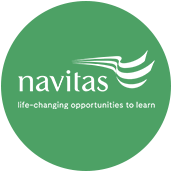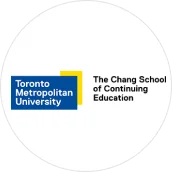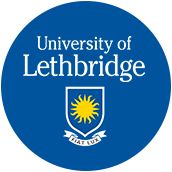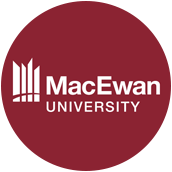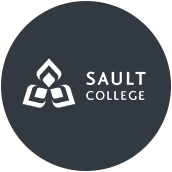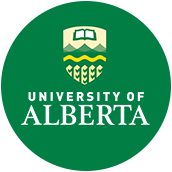A comprehensive guide to
Post Graduate Work Permit (PGWP) in Canada Guide 2024
Work Visa
Through PGWP Program Canada, you may obtain real-work experience in Canada after you complete your studies. With this chance, you will be able to enhance your skills, better your chances of finding a job as well as the prospects of obtaining a permanent residence in Canada.
The Post-Graduation Work Permit Program (PGWPP) enables international students who have graduated from Canadian designated learning institutions (DLIs) to obtain a valid open work permit and gain work experience there. Additionally, graduates can qualify for permanent residency in Canada by gaining skilled Canadian work experience in National Occupational Classification (NOC) skill type 0 or skill type A or B through the PGWPP. Through the Canadian experience class in Express Entry, students who gain Canadian work experience are eligible for permanent residence in Canada.
The Post Graduate Work Permit in Canada is a highly sought-after opportunity for international students with studies completed at the designated learning institution (DLI) in Canada. Let's learn more about the PGWP in 2024, including eligibility criteria, the application process, and the latest updates from Immigration, Refugees, and Citizenship Canada (IRCC).
PGWP Canada Quick facts
- The fees for the Post-Graduate Work Permit in Canada are CAD 255, with an additional CAD 605 fee for the restoration of student status and PGWP.
- The PGWP Canada application must be submitted within 180 days after completing the course.
- The post-graduation employment visa can last from 8 months to 3 years.
- The length of a PGWP in Canada can be as long as the time the applicant spent studying in Canada.
- You must complete at least 50% of your program in Canada, whether through online or in-person classes. Studying outside Canada before August 31, 2023, will only affect the duration of your PGWP if it's less than half of your total program.
- Post-Graduate Work Permit Canada may only be available for some programs. Verify your eligibility before selecting a program.
PGWP Canada Eligibility
PGWP in Canada
PGWP outside Canada
Documents Required for PGWP Application Canada
How to Apply for a Postgraduate Work Permit?
Fees for Post Graduate Work Permit Canada
PGWP Canada Duration and Length
Processing Time for PGWP
Changes and Updates to PGWP in 2024
What is the validity period of a post-graduation work permit?
Who is not eligible for PGWP?
Post Graduate Work Permit Canada College List
Study in Canada
Study Abroad Exam
Enquire Now
Not sure what you are looking for? Fill in the details to get a call-back.
Explore universities & colleges
Top Universities In Canada For Indian Students.

Canadore College - Stanford Mississauga Campus
Ontario, Canada • 14 Programmes
Tuition Fee : CAD 14500 - 15000 / year

Cambrian at Hanson - North York Campus
Ontario, Canada • 9 Programmes
Tuition Fee : CAD 17500 - 18000 / year
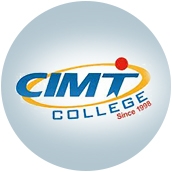
Canadian Institute of Management and Technology (CIMT) - Scarborough Campus
Ontario, Canada • 7 Programmes
Tuition Fee : CAD 11000 - 14000 / year


Georgian College - Orangeville Campus
Ontario, Canada • 7 Programmes
Tuition Fee : CAD 14000 - 14500 / year
Not sure what you qualify for?
Search for options that you are eligible for from 10s of Thousands of programs.
A-Z About admissions
A-Z of admissions, covered Pre to Post
Book a free counselling Session?
Answer a few question and receive handpicked college recommendation best for you
Study Abroud Exam
Popular English Language Proficiency Exams
Blogs and Articles
Study in Canada Blogs & Articles
Updated on • May 24,2024 04:49 PM IST • Study in Canada
Top Universities For Computer Science Courses in Canada
Updated on • May 27,2024 05:33 PM IST • Study in Canada
Increase Your PGWP Duration with 2 Years of Study in Canada
Updated on • May 22,2024 10:58 AM IST • Study in Canada
Canada Increases Off-Campus Working Hours for International Students
Updated on • May 22,2024 05:48 PM IST • Study in Canada
Student Education Loan to Study in Canada - Eligibility, Documents Required, How to Apply
Updated on • May 18,2024 03:27 PM IST • Education Loans
Teaching Courses in Canada for Indian Students
Updated on • May 17,2024 11:26 AM IST • Study in Canada
Universities in Canada for International Students
Updated on • May 14,2024 11:49 AM IST • Study in Canada
Colleges in Canada for International Students
Updated on • May 09,2024 05:17 PM IST • Colleges in Canada
Finance Courses & Universities in Canada
Updated on • May 02,2024 05:16 PM IST • Courses in Canada
Guide to Student Housing in Nova Scotia
Updated on • Mar 29,2024 10:49 AM IST • Study in Canada
Updated on • Mar 29,2024 11:47 AM IST • Study in Canada
Masters in Geology in Canada: Colleges, Courses, and Fees
Updated on • Mar 28,2024 11:32 AM IST • Study in Canada
Project Management Courses in Canada: Eligibility, Cost, Universities and more
Updated on • Mar 19,2024 03:09 PM IST • Courses in Canada
Study Loan for Canada : A Complete Guide
Updated on • Mar 18,2024 05:23 PM IST • Education Loans
Colleges in Edmonton Canada for International Students
Updated on • Mar 18,2024 04:10 PM IST • Colleges in Canada
Data Science Courses in Canada: Universities, Fees, Requirements, Scholarships, Salary and More
Updated on • Mar 02,2024 04:20 PM IST • Study in Canada
Updated on • Mar 01,2024 03:19 PM IST • Study in Canada
Master's in Management (MIM) in Canada: Universities, Eligibility, Cost, Process and more
Updated on • Mar 01,2024 12:56 PM IST • Study in Canada
MS in Sports Management in Canada: Courses, Fees and Entry Requirements
Updated on • Feb 29,2024 04:17 PM IST • Study in Canada
Master's Scholarships in Canada: Types, Top Universities, Eligibility and Process
Updated on • Feb 28,2024 11:35 AM IST • Study in Canada
Lets get your queries resolved! Session?
Got a question? Ask and discuss with 100,000+ study abroad aspirants and experts
FAQ's
FAQ's Study In Canada
How much does it cost to study in Canada?
Canada is an affordable country to study as compared to many others. You will likely need between CAD20,000 and CAD30,000 per year to cover tuition. The range is a guideline only, and the exact number will depend on your school and program. The cost of housing, food, and other living expenses will vary based on your location and personal needs.
